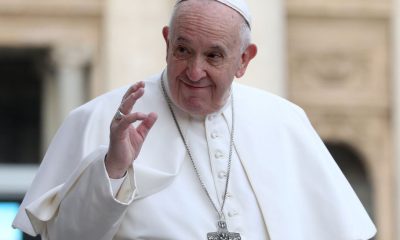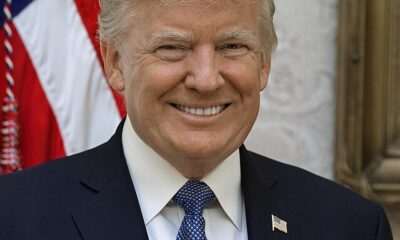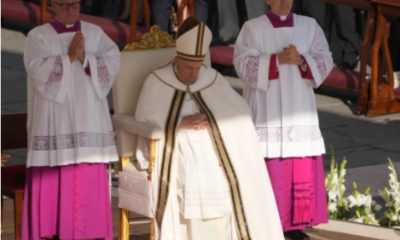More News
Why Popes Take New Names After Election
By Benjamin Abioye

When a new pope is elected, one of his first significant acts is choosing a papal name. This tradition, which dates back to the Middle Ages, is far more than a mere formality. The name a pope adopts carries deep symbolism, reflecting both the legacy of the Church and the values he intends to promote during his papacy.
By selecting a name, the pope can honor past saints or influential predecessors whose ideals align with his own vision for the future of the Church.
The practice of changing names began with Pope John II, who chose to abandon his birth name, Mercurius, due to its connection with the Roman god Mercury. This marked the start of a long-standing tradition among papal leaders.
Over the years, many popes have selected new identities to honor those who exemplified qualities they wished to embody—whether that be devotion, humility, or strength. For instance, Pope Francis chose his name to honor St. Francis of Assisi, symbolizing his commitment to peace, poverty, and caring for the poor. Similarly, Pope Benedict XVI selected his name to reflect ideals of reconciliation and stability.
While most papal names hold positive associations, some are avoided due to historical controversies. For example, no pope has taken the name “Peter” out of respect for the first pope, St. Peter. There is also a long-standing prophecy suggesting that “Peter II” would be the last pope. Additionally, names like “Urban” and “Pius” are unlikely to be chosen today due to the negative associations with past popes, such as Urban VIII’s condemnation of Galileo or Pius XII’s controversial role during World War II.
The selection of a papal name can also offer insight into the priorities of the new pope. If the pope seeks reform, he may choose a name like Leo, after Pope Leo XIII, who was known for his advocacy for social justice. Alternatively, a pope focused on eliminating corruption might choose the name Innocent, in reference to Pope Innocent XIII. In recent times, there has also been speculation that a pope from the Global South might select a name tied to African heritage, such as Gelasius or Miltiades, reflecting the increasing influence of non-European regions in the Church.
When a pope is finally elected, the moment is marked by a formal announcement. The protodeacon of the College of Cardinals will announce the name of the new Bishop of Rome from the balcony overlooking St. Peter’s Square. This moment is highly symbolic, as it not only signifies the beginning of his papacy but also the broader direction in which the Church will move under his leadership.
The name chosen serves as a public declaration of the new bishop of Rome’s priorities and the direction he hopes to steer the Roman Catholic Church. The world eagerly awaits to see which name the new pope will adopt and what it will reveal about his vision for the Church.
Send Us A Press Statement Advertise With Us Contact Us
And For More Nigerian News Visit GWG.NG













